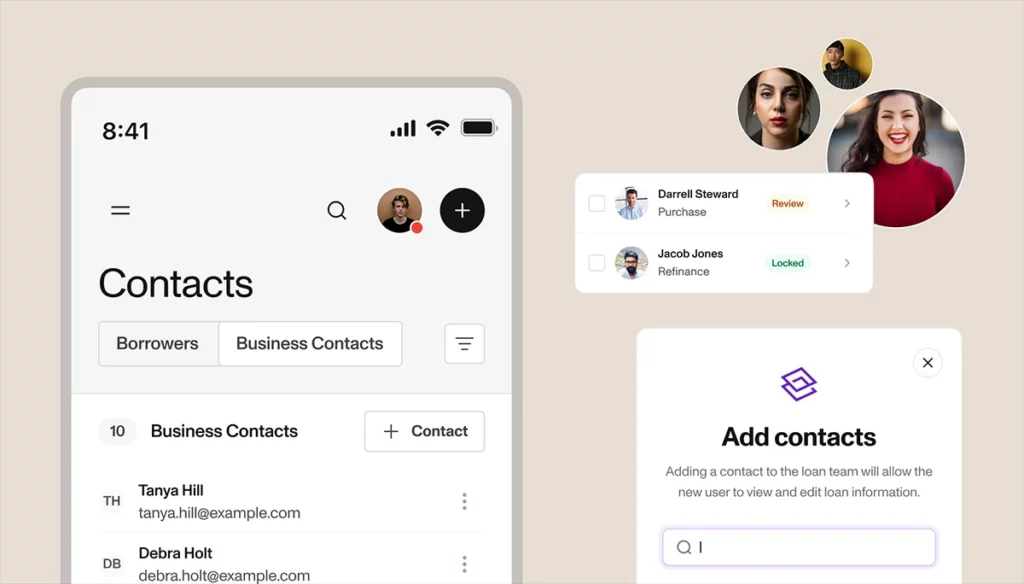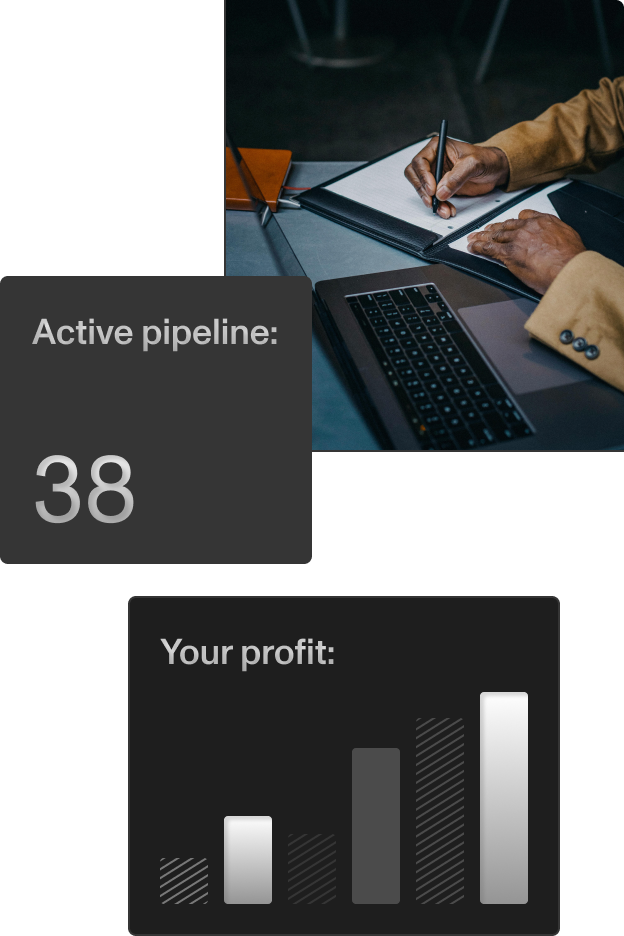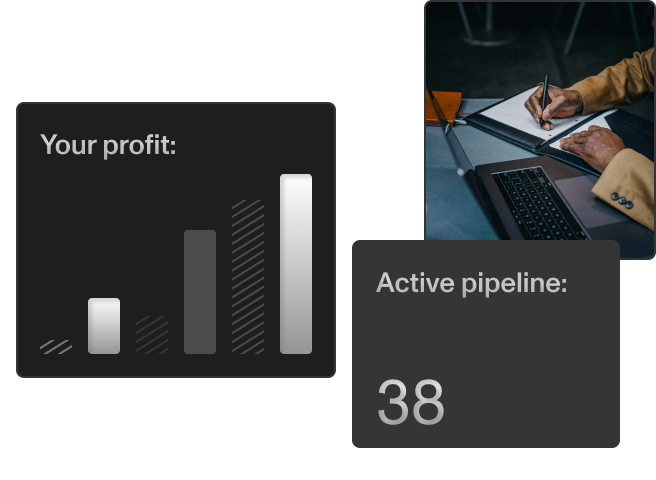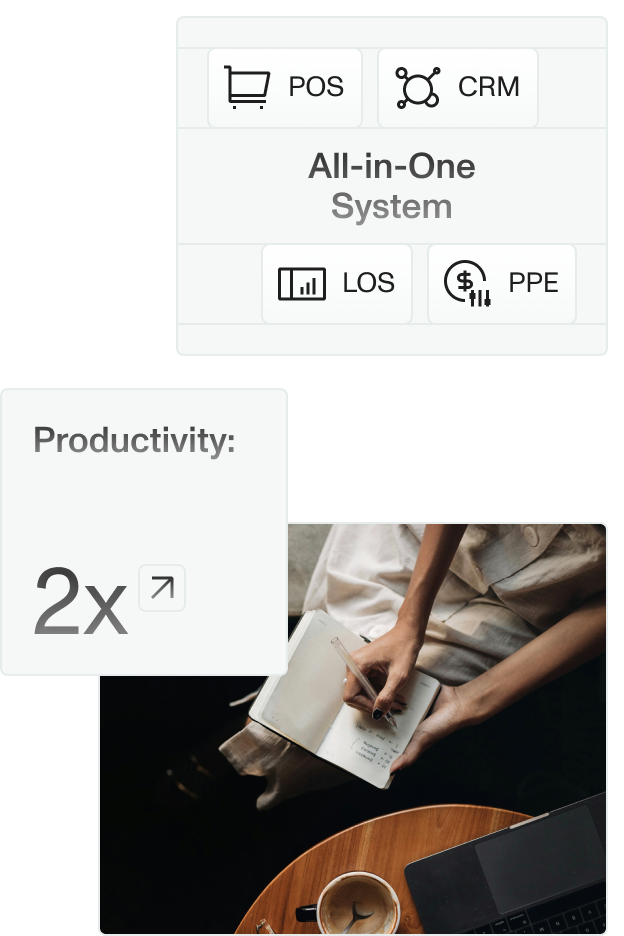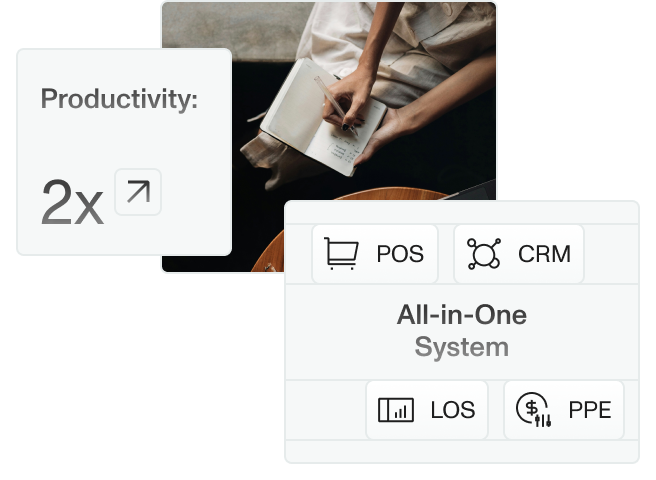The typical mortgage originator may juggle dozens or even hundreds of customers simultaneously. Trying to nurture these relationships without the aid of Customer Relationship Management (CRM) software would be daunting. CRM technology streamlines every step, optimizing customer interactions and eliminating hours of tedious administrative tasks.
The Role of CRM in Mortgage Origination
Mortgage CRM systems are integral to keeping your origination business successful. Why? One reason is that the CRM provides a centralized hub where you can view every customer’s journey through your pipeline. The centralization makes clumsy spreadsheets and disparate systems obsolete.
Additionally, CRM software can automate many manual tasks, such as data entry and follow-up communications.
Choosing the Right Mortgage CRM System
The right mortgage broker CRM is not a one-size-fits-all solution. Your business has specific priorities that should be addressed when choosing software. For instance, do you primarily work with borrowers seeking conventional loans or niche jumbo mortgages? Understanding what distinguishes your origination business from the next helps identify features and functionality you should prioritize in a CRM system.
Here are a few popular CRM mortgage platforms:
- BNTouch Mortgage CRM: This software is developed specifically for the mortgage industry and includes key features like lead management and automated SMS marketing.
- Jungo: Another top-rated option tailored to mortgage professionals, Jungo offers an intuitive interface, loan document management, and loan referral tracking.
- Whiteboard CRM: Surefire helps mortgage teams gain repeat business through lead distribution and real-time analytics.
Best Practices for Effective CRM Implementation
Effective CRM implementation can make all the difference in maximizing its benefits. To ensure a smooth and successful adoption of your chosen system, here are some CRM best practices to consider:
Defining Your Objectives
Before implementing a CRM system, you must define clear goals and objectives. What are you trying to accomplish? You may be trying to increase loan volume, so you need CRM software that supports heavy lead generation and management.
Or, you can improve customer satisfaction with automated communications and status updates. Aligning your CRM objectives with your business growth strategies keeps you on track.
Data Migration and Integration
When adopting a new CRM system, one of the biggest obstacles is migrating and integrating existing data. The data might be spread across various spreadsheets, databases, or legacy systems.
The secret to efficient data migration is a well-defined strategy and plan. Consider hiring a data expert or utilizing CRM vendor-provided resources for assistance. If you keep the work in-house, focus on these mortgage CRM best practices:
- Ensure that your data is clean and organized. Reconcile any inaccuracies or redundancies before migrating to avoid data conflicts.
- Migrate data in stages, starting with critical information like customer contact details and loan status. This approach makes it easier to catch errors and resolve them promptly.
User Training and Adoption
The best mortgage CRM in the world is only as effective as its users. Your team needs to understand how it fits into their daily operations, and simply introducing the software without training won’t accomplish this.
To encourage adoption, provide thorough user training that includes hands-on practice and ongoing support. You can create a mini knowledge base with FAQs and videos to help troubleshoot common issues.
During the training period, soak up as much feedback as you can. You may hear ideas and solutions for customizing the CRM system to fit the team’s workflow better.
Customization for Mortgage Origination
One of the benefits of CRM technology is its flexibility. It doesn’t force you to change the way you work; instead, you can customize it to adapt to your business processes.
For mortgage originators, this means tailoring the CRM system to handle loan originations for your chosen clientele. Say you typically handle jumbo mortgages, but the default system doesn’t have a field for this loan type. In this case, you can customize the CRM to include a “jumbo mortgage” category and create reports based on that segment.
Another customization example is customizing fields in the lead management section. You can add fields for specific income requirements or property types in your area.
Automating Workflow and Communication
Workflow automation is a game-changer for mortgage origination. With a robust CRM mortgage broker system, you can automate repetitive work and follow up with clients and partners like clockwork. Once-tiresome tasks like sending hundreds of customers birthday greetings can be arranged in a few minutes.
If you want to get the most out of your CRM’s communication features, use CRM analytics to determine the best method for communication-based on client behavior and preferences. Then, set up automated email and SMS campaigns that trigger when clients reach certain stages in the loan process, making sure to use their preferred method. Merge fields can add details like names, loan numbers, and property addresses.
Data Security and Compliance
Your business handles sensitive personal information daily, and you’re legally obligated to protect it. Failure to comply with regulations like the Gramm-Leach-Bliley Act (GLBA) or the Fair Credit Reporting Act (FCRA) can result in severe penalties and damage your reputation.
A CRM helps you maintain compliance in several essential ways. Digital communication channels can be encrypted and regularly monitored for intrusions and viruses. If you send email or text blasts, advanced CRM features allow for easy opt-out management so you don’t run afoul of telecommunication rules. Your CRM ensures you’re contacting the right people and not ending up on spam lists.
Monitoring and Measuring CRM Performance
Data is everything if you want to determine whether your CRM system is doing its job. You have to track and measure its performance accurately.
Key Performance Indicators (KPIs) are measurable metrics that evaluate the effectiveness of a particular activity or process. Below are some examples of common KPIs to evaluate CRM performance in the mortgage industry:
- Lead conversion rate: Measures the percentage of leads that become actual borrowers.
- Time to close: How long does it take to get through your pipeline? Time to close tracks loans from origination date to closing.
- Contact response rate: Knowing how many interactions with clients result in a response indicates the success of your communication strategies.
Implementing a mortgage CRM system is a strategic investment that can significantly boost your business’s growth and success. It’s how modern originators communicate with clients. The CRM improves operations, enhances customer satisfaction, and provides valuable data for monitoring performance.
Ready to revolutionize your mortgage origination process? Schedule a Sonar demo today!

